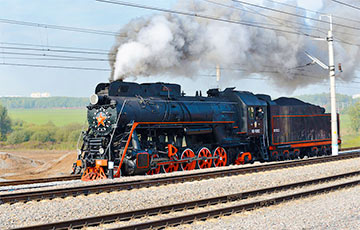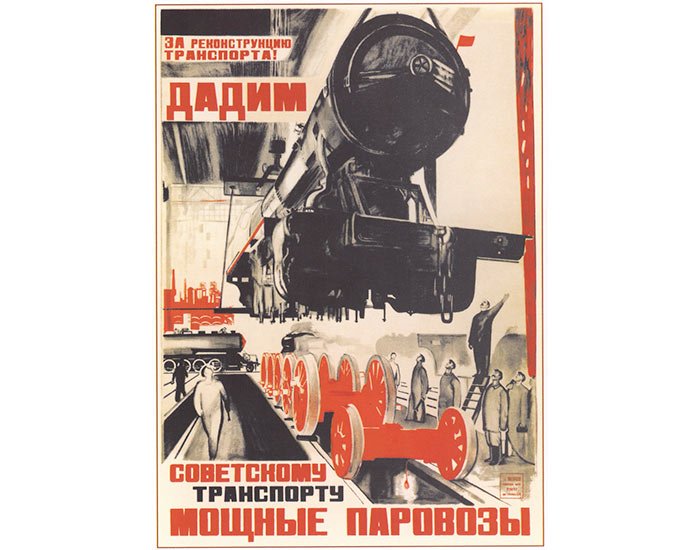Industrialization of Lukashenka Smells Of Naphthalene
44- 10.05.2018, 9:03
- 48,692

The authorities make attempts to build the economy of the 1930s.
For a long time the project named "Modernization of Industry" was implemented in Belarus. Billions of dollars were allocated for an attempt to revive old-fashioned enterprises. Officials of all ranks reported on achievements and the "revolutionary" breakthrough in industry. And what is the true picture?
Last week Lukashenka stated that state's support did not work.
"We do not observe the promised effect of previously rendered state's support," the ruler stated.
Later Lukashenka cited an example which actually proved the complete failure of the modernization:
"Let's take Belshina, for example: In 2014-2015 the modernization was held, and in 2017 the net loss of Belshina increased almost in 65 times and equaled to about $136.5 million," the dictator confessed.
Nevertheless, the other day Minister of Economy Uladzimir Zinouski announced "a new plan for industrialization of the country".
Economists laughed at his statement. "Belarus does not need all this mess. Don't bring disgrace to yourself. What industrialization do you mean? I can understand "industrialization" during Stalin times, when people wore straw shoes. But Belarus does not need industrial enterprises. It needs IT and robots. Today the service sphere takes the leading position today. Industrialization is not relevant, it is meaningless," head of the Strategy analytical centre Leanid Zaika stated.
Together with economists Leanid Zlotnikau and Barys Zhaliba, Charter97.org had a post-mortem of the Belarusian economy.
Soviet methods of management do not work.
Leanid Zlotnikau believes that the term "modernization" is not applicable to the process which took place in the Belarusian industry:
"It cannot be called a full-fledged modernization. It was a partial modernization of enterprises. This process requires completely different technologies. How it was? Funds were allocated to tractor and automobile plants for $30-50 million each per year. Not great funds were allocated.
Enterprises could install a new painting shop and new equipment. It was made step by step. As soon as the new equipment was installed, that installed in the very beginning was already outdated.
So the gradual modernization of many years did not bear any effect. Lukasheka can visit Integral or bearing plant and give them $40 million, but they need 400$ million.
There is no money for a full modernization. Enterprises constantly rob Peter to pay Paul. We do not talk about the modernization, but the necessity of enterprises to pay wages and to cover payments.
The very Gomselmash, Minsk Tractor plant, Minsk Automobile plant borrowed money not only to held the modernization but also to support the operating production. And to pay wages to their employees," the expert notes.
The economist offers to look at results:
"What is the result of the modernization?" Outdated equipment, people trapped into the average income, no growth of work efficiency.
If we look at figures, GDP growth since 2012 is al follows: -1-1.5, 0, + 1. On average we have zero.
No work efficiency was reached. It was noted by representatives of the World Bank and many international experts. Everyone said that the growth of work efficiency was close to zero in Belarus.
Attempts to reform enterprises crushed into the Soviet methods of management, lack of the market economy and so on. What modernization you mean then?".
What can appointees do?
Barys Zhaliba explains the failure of the modernizarion in the very Belarusian system:
"The country runs the authoritarian and centralized economy managing. Enterprises must be fully independent and carry out modernization at their own means. But here a loss-making enterprise is constantly filled with budgetary means. There is no rehabilitation, no dicisions on closing an enterprise are made. And it becomes the burden on the state budget.
And it allocates money in foreign currency. Directors are ordered to completely use funds. If you fail, then it you are removed from the position, or even worse."
Economist calls the transfer to the market economy a way out of the current system:
"As far as I know, the budget performs only social functions in developed countries. The modernization is the matter of enterprises. If we do not transfer to the market model, everything will run in circles. Naturally, the development of funds from the budget is ineffective. Directors do not own enterprises here. We deal with appointees. Only private interests are the motivation for the economy. And there are almost none of them here", the analyst stated.
There is no money for other round of "modernization".
Leanid Zlotnikau urges not to listen to highlight declarations of the Minister of Economy:
"Today it is said that it's time to put the end to the planned economy, and tomorrow we hear that we are adherents to it. Words do not matter.
There is no money for other round of "modernization". There is no foreign investment in the country. This billion and a half we have is the investment of owners of already existing enterprises in Belarus. Investments mean new plants, and there are none.
When we say about the investment of foreign funds, amounts of $5 billion or $13 billion are voiced, it is not quite true. It's the process when our enterprises pay our debts and they are considered as foreign investments. In fact, this is a temporary, floating capital. Real investments are miserable".
The expert associates the reluctance of investors to enter the Belarusian market with the fact that the country misses the supremacy of law:
"Let's take OAO Orsha Aircraft Repair Plant", which got investments from Ukrainian businessmen. Lukashenka said that if the plant was built from scratch and the investor left it, let it grass. And if it was privatized, the state has the right to it. Who will invest in our economy after such actions? We have no protection of private property," the economist summed up.
It smells of naphthalene and of the 1930s.
Barys Zhaliba drew attention to the concept of "industrialization", which comes from the Soviet era:
"We hear fairly correct words about the ineffectiveness of state support of enterprises, but actions drastically differ.
Again, amid a full-fledged support and patronage of the state means to allocated for the project which smells of naphthalene and of 1930s of the Stalin-like economy running.
It's no use to talk about industrialization. It's old-fashioned. Advanced countries focus on IT-economy, service sphere and robot-based application. The industrialization is quite bad direction," the interlocutor of Charter97.org summed up.










